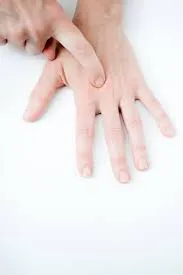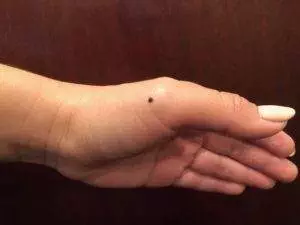-
 Art of Wellness Acupuncture & Traditional Chinese Medicine (TCM)11704 Wilshire Blvd, Suite 295, Los Angeles, CA, 90025
Art of Wellness Acupuncture & Traditional Chinese Medicine (TCM)11704 Wilshire Blvd, Suite 295, Los Angeles, CA, 90025
myartofwellness@gmail.com310-451-5522 Office Hours
MonClosedTue7:30 am --4 pmWed7:30 am --4 pmThu7:30 am -- 4 pmFri7:30 am -- 4 pmSat7:30 am -- 4 pmSunClosedOur office opens from Tuesdays to Saturdays 7:30 am to 4 pm, will be closed on Memorial day, Independent day, Labor day, Thanksgiving day, Christmas and New year.
-
Recent Posts
- Chinese New Year 2026: Year of the Horse
- Acupuncture and TCM Treatment for Perimenopause Symptoms
- How to Treat Insulin Resistance With Acupuncture and TCM
- How to Treat Metabolic Syndrome With Acupuncture and TCM
- How to Treat Syncope With Acupuncture and TCM
- How to Treat Thoracic Outlet Syndrome With Acupuncture and TCM
- How to Treat Dupuytren’s Contracture With Acupuncture and TCM
- How to Treat Nutcracker Syndrome With Acupuncture and TCM
- How to Treat Rosacea With Acupuncture and TCM
- How to Treat Perioral Dermatitis With Acupuncture and TCM
- Lymphatic Drainage With Acupuncture and TCM
- How to Treat Turf Toe With Acupuncture
- How to Treat Nerve Pain With Acupuncture and TCM
- How to Treat Watery Eyes With Acupuncture and TCM
- How to Treat Ovarian Cysts With Acupuncture and TCM
- How to Treat Dystonia With Acupuncture and TCM
- Sign up to receive news and updates and get my free report:“The Top 10 Reasons to Try Acupuncture”

December 2025 M T W T F S S 1 2 3 4 5 6 7 8 9 10 11 12 13 14 15 16 17 18 19 20 21 22 23 24 25 26 27 28 29 30 31
Traditional Chinese Medicine
How to Treat Polycystic Ovarian Syndrome (PCOS) With Acupuncture and TCM
By Xiaomei Cai, L.Ac., Ph.D.

Polycystic Ovarian Syndrome (PCOS) is a common hormonal condition that affects 10-20% of women during their reproductive years. PCOS is also one of the most prevalent causes of infertility among women. The primary problems of PCOS are hormonal imbalances and dysfunction of the ovaries. Women with PCOS have irregular or missing periods, anovulatory menstrual cycles, and elevated androgen and/or testosterone levels.
This condition is different that having one or a few ovarian cysts that become enlarged and may cause pain.
Medical interventions for PCOS often involve using birth control pills to stimulate regular menses, but this treatment does not address the issue at its source. Additionally, many women struggling with PCOS are actively trying to get pregnant, so contraceptive medications are not useful in these cases. TCM and acupuncture are able to help resolve many women’s health problems, including PCOS and the resulting infertility, restoring normal function to the female reproductive system without the side effects that medications can cause.
What Is PCOS?
PCOS is a syndrome, which means it is a collection of symptoms that occur together and help to define a disease even though its medical causes are not completely understood yet.
Most women with PCOS ovulate infrequently or not at all. Women with PCOS also might experience:
- Irregular Periods
- Menstrual cramps, heavy and/or painful periods
- Insulin resistance
- Obesity
- Excess hair on body and face (hirsutism)
- Thinning hair on head
- Acne, oily skin
- Abdominal bloating
PCOS is considered a disorder of both the reproductive and endocrine systems. The majority of women with PCOS also exhibit hyperandrogenemia – an excess amount of androgen hormones. In many cases, this condition starts early, when a girl is going through puberty. The problems begin to manifest shortly after a girl gets her first period (menarche).
Androgens are commonly referred to as the “male” sex hormones, although they naturally occur in both men and women, just in differing amounts. The primary androgens are testosterone and androstenedione. In women, androgens are produced by the ovaries and adrenal glands, whereas in men they are produced in the testes, usually in larger quantities. Hyperandrogenemia can be helped by weight loss, because adipose tissue (fat) itself is hormonally active, meaning the fat cells themselves also produce excess androgens.
Insulin resistance is also widespread among women with PCOS; about 85% of women with PCOS are insulin resistant, causing them to be at risk for Type 2 Diabetes. Sometimes women are prescribed Metformin to lower insulin and blood sugar levels.
PCOS Diagnosis
PCOS often goes undiagnosed for years. In many cases, women do not find out they have it until they are trying to get pregnant and then seek help for infertility. For most women, PCOS causes irregular periods. In these cases, women may go months without having a period, and then have a very heavy, painful period. Often, PCOS begins when girls are teens, and this condition causes them to struggle with being overweight, prone to getting pimples, and having extreme period pain (dysmenorrhea) and heavy periods that can cause embarrassing accidents. Girls may not realize that their experience is not normal, and may not talk to anyone about it. When they do seek help, they are usually prescribed birth control pills.
Birth control pills “regulate” the menstrual hormone cycle, causing a period to predictably start every 28 days. This use of contraceptives to “correct” menstrual problems and help clear acne during the teenage years leads to the masking of PCOS for many years–often until a woman is well into adulthood and ready to conceive. Then, when the birth control is stopped, the PCOS symptoms appear, which generally means that regular periods stop.
At this point, a firm diagnosis of PCOS is often reached after an internal ultrasound reveals the phenomenon which gives the syndrome its name: multiple small cysts forming around the edges of the ovaries. These fluid-filled bubbles, only a few millimeters in diameter, are partially formed eggs that have not been released. These cysts do not in and of themselves cause problems. Blood tests are done to find the high levels of androgens (testosterone) and also to measure the hormones involved in egg production and release. Women with PCOS often have higher levels of luteinizing hormone (LH), which triggers ovulation. The ratio of LH to FSH (follicle stimulation hormone) is higher in women with PCOS.
Conventional medicine provides the means to pinpoint the manifestations of PCOS in the body, hormonally and physically, but it does not offer much in the way of causal understanding or effective treatment.
TCM Perspective of PCOS
Traditional Chinese Medicine is based on the concepts of Qi, life force energy that travels through the body along meridians, and the balanced energies of Yin and Yang. Elemental pathogenic factors such as Wind/Cold, Dampness, Fire/Heat and Dryness come into play. Disease is created by either external or internal factors and can be discovered through diagnostic techniques of observation, inquiry, and palpation.
In a sense, TCM looks at all diseases as “syndromes.” In TCM, we do not look for one single cause of the symptom for which the patient is seeking relief. We look for other signs and symptoms that the patient may not have realized were related. We study the whole collection of indications and look for a pattern. An illness can be the result of any one of several different patterns.
When working with a patient who is experiencing reproductive and hormonal problems, a TCM provider will take into consideration the lab results of blood tests showing hormone levels, but will also be looking for clues as to what is happening throughout the organ systems of the body. In TCM, PCOS is categorized as a “Zheng Jia” diagnosis. Zheng Jia means “masses” (tumors), and includes uterine fibroids, endometriosis, ovarian cysts, and even reproductive cancers.
Internal factors are at the root of PCOS and other Zheng Jia disorders. Most clinical manifestations of PCOS arise from patterns of too much Dampness and Phlegm in the reproductive organs, which is what causes the fluid-filled cysts to form. This excess dampness is also what causes weight gain. Kidney deficiency contributes to the imbalances in hormone production. Blood deficiency causes absent or scanty periods, while blood stasis leads to painful periods.
Acupuncture and TCM for PCOS and Hormonal Imbalance in Women
Standard medical treatment for PCOS and infertility in women involves using medications to alter hormone levels: either OCP to regulate periods, Metformin to lower insulin, or Clomid or Letrozole to stimulate ovulation.
Acupuncture and TCM treatment for PCOS focuses on clearing excess dampness and phlegm from the uterus and other female reproductive organs, tonifying and nourishing the kidneys, invigorating the blood and clearing blood stasis. Electro-acupuncture has been shown to help facilitate natural ovulation.
A TCM provider will also focus on lifestyle and nutrition changes that will help alter the internal factors involved. Tracking basal body temperature can help both doctor and patient understand what is going on during the follicular and luteal phases of the menstrual cycle in each individual. Specially chosen combinations of herbs can be very helpful for making the subtle adjustments needed to normalize the hormones, increasing blood flow, and even balancing the emotions.
PCOS and Endometriosis
Endometriosis is another common women’s health problem in which uterine lining tissue begins growing outside of the uterus. It is estimated that about 10% of reproductive-age women have endometriosis, although we cannot be sure because, like PCOS, endometriosis is also often undiagnosed. It is not uncommon for women to have both conditions. When women with endometriosis have a menstrual period, there can also be bleeding in other parts of the abdomen. This can cause severe pain and create a lot of scar tissue in the pelvic region. Sometimes surgery is recommended to remove this scar tissue. This can help alleviate pain and increase the chances of conception, but it does not address the root problem, so the bleeding often recurs. Like PCOS, endometriosis can be a cause of infertility, making the use of birth control pills to control the hormones far from ideal.
According to TCM, endometriosis and PCOS are both Zheng Jia disorders; they are part and parcel of the same root problem. An acupuncturist can help correct both of these disorders, and the related infertility, all at the same time.
Integrative Medicine for PCOS and Infertility in Women
TCM has been using acupuncture and herbs to help women’s reproductive disorders and increase fertility for many centuries. In the past few decades, it has become increasingly common for patients to seek out acupuncture to help address infertility due to PCOS, both on its own and as an adjunct to Assisted Reproductive Technologies (ART). Studies have shown that acupuncture and herbal supplementation used in concert with infertility procedures such as Intrauterine Insemination (IUI) and In Vitro Fertilization (IVF) improve outcomes. Acupuncture treatment also helps to reduce the pain and anxiety many women experience while undergoing ART procedures, and pregnancy symptoms like morning sickness.
Top 5 Self-Care Tips for PCOS

One of the main internal factors causing the excess dampness and stasis of PCOS is too much cold in the body. Maintaining your warm energy is key. Habits like drinking ice cold beverages and eating ice cream, especially around the menstrual period, can really have a negative impact. It may seem old-fashioned, but a lot of the advice we associate with our grandmothers’ time still applies today.
- Dress appropriately for potentially chilly weather. Always bring your jacket with you.
- Avoid exercising to the point of sweating and then allowing yourself to get chilled. Change into dry clothes right after your workout.
- Keep the abdomen covered and warm.
- Don’t wear sandals or go barefoot when it is cold outside.
- Don’t go to bed with wet hair.
Acupuncture Near Me for PCOS
At Art of Wellness, our doctors have over 30 years of experience in the successful management of women’s health issues, including PCOS and infertility. In China, Dr. Cai practiced and taught at Chengdu University’s TCM Hospital as a gynecologist. During a two-year period of specialty training, she had the opportunity to study and work with some of China’s foremost experts, pioneers in integrative medicine for reproductive health.
Since 1997, Drs. Cai and Tan have brought their unique experience to Santa Monica and Los Angeles. Their knowledge of both Western medicine and Traditional Chinese Medicine allows them to recommend, when necessary, a mixture of medical modalities and to advise whatever course of treatment is most beneficial for each patient.
*This article is for education from the perspective of Traditional Chinese Medicine only. The education provided by this article is not approved by FDA to diagnose, prevent, treat and cure human diseases. It should not stop you from consulting with your physician for your medical conditions. Traditional Chinese Medicine is based on Qi, which is an invisible force that usually cannot be observed by modern science. Because science focuses on testing ideas about the natural world with evidence obtained through observation, these aspects of acupuncture can’t be studied by science. Therefore acupuncture and Chinese herbs are often not supported by double-blind, randomized trials, and they are considered alternative medicine therapies in the United States.
How to Get Rid of Neck Pain With Acupuncture and TCM
By Qineng Tan, L.Ac., Ph.D.
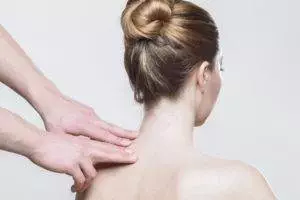
Neck pain, or pain that occurs or originates in the cervical spine, is a common complaint among people of all ages. Neck strain due to everyday repetitive motions, posture while working on the computer, or an odd sleeping position is something everyone can relate to. Acute neck pain or whiplash can be caused by an injury, like a sudden fall or car crash. Chronic neck pain arises because of any one of a number of degenerative disorders affecting the upper seven discs of the spinal column. Acupuncture and other TCM treatments for neck pain and other musculoskeletal disorders have been shown to be highly effective for relief of pain and stiff neck.
A sore neck can come on quite suddenly, or it can slowly develop over months or even years. The nature and exact location of neck pain can vary widely: neck strain, spasms, neck pain and headache, neck pain right side, along one side or both sides of shoulder blade, neck pain that refers to arm/hand pain/tingling/numbness, or pain in back of head and neck. Signs and symptoms associated with neck pain may include: stiffness, immobility, general soreness, sharp, stabbing pains, and pain that radiates into the shoulder and down the arm.
Neck pain can be debilitating and get in the way of daily activities. When people seek medical care for neck pain, doctors often find it difficult to pinpoint the exact source of the stiffness and discomfort. Generally, patients are prescribed pain medications and muscle relaxers to alleviate soreness and restore some mobility until the situation resolves itself. This does not address the root cause, however, and the pain may return or worsen. In some cases, patients might be referred to PT (physical therapy) and/or a chiropractor to help strengthen the muscles, or adjust structure, and relearn habituated movement patterns.
Acupuncture provides relief of neck pain and tightness without habit-forming drugs that can cause unwanted side effects. We see many people who have tried PT and even surgery to treat neck pain but are still suffering, looking for an alternative method to address their symptoms.
In this article, we will discuss neck anatomy, how TCM views neck problems, how to treat neck pain with acupuncture, and offer some neck strengthening exercises you can do at home to help alleviate pain without side effects.
TCM View of Neck Pain and Diseases of the Cervical Spine
The neck has a big load to carry, and yet it is, in fact, the most delicate and potentially the weakest portion of the body because it connects the head to the trunk with only seven relatively small vertebrae.
The average adult’s head weighs between ten and fifteen pounds. The head, housing the brain, is arguably the most important part of the body. Many nerves and blood vessels that support fundamental functions within the head run to the rest of the body through the narrow pathway of the neck. The neck anatomy must structurally support the skull and safely house all of these crucial tissues.
The seven vertebrae that comprise the cervical spine support the major arteries that nourish the brain and all of the other important organs of the head. Bundles of nerves that send communications from the brain to the rest of the body also run along the spinal column. If the blood vessels or nerves that run through the cervical spine get twisted or blocked, it can cause compression that affects the ears, eyes, and mouth. Sometimes people may not realize that problems such as blurry vision, a burning sensation in the mouth, high or low blood pressure, tingling in the arms, tinnitus, dizziness, and headaches can all be due to deeper neck problems related to the blockage of nerve impulses or blood flow to the head.
Neck pain and headache are often signs of something deeper going on. Pain in the side of the neck and sore neck muscles are a signal to pay attention to the health of the spine.
- Nerve compression – causing sensations of pain, tingling,or numbness in the neck, shoulder or arm, decreased mobility, stiffness, muscles atrophied or spasming, can cause radiating neck and shoulder pain.
- Artery blockage – constricting blood flow, affects the sensory organs of the head, causing dizziness, lack of balance, pressure in the head, eyes fatigue, hearing loss, tinnitus, or problems with memory and cognitive function.
- Spinal cord damage – a serious injury, such as from a car accident or fall from a horse can permanently damage the spinal cord, sometimes causing partial or total paralysis.
- Bones/Joints – the vertebra is a long series of fine joints; these can degrade over time, the bones becoming misshapen, discs becoming enlarged or calcified or bulging.
- Soft tissue – the muscles supporting the cervical spine weaken, sometimes due to injury or posture. The ligaments thicken and stiffen. Over time, the alignment of the spine is compromised.
Pain in the muscles of the neck can be due to old injuries, the aftermath of working out or playing sports. Repetitive motions at work – lifting objects, bending the head forward, looking down or to one side constantly – can cause stiff neck pain, tightness, and tenderness. As we age, the muscles simply become fatigued more easily. Rest can help these mechanical problems, but lack of use can also cause more stiffness.
Facet joint syndrome occurs when the small joints of the spinal column become stiff and swollen due to inflammation. We see this condition even among young adults and teenagers. Facet joint syndrome causes a significant lack of mobility, making it hard to turn the head, get up and down from a seat, or stand without hunching forward.
Bulging discs are a chronic condition, while herniated discs are usually caused by a sudden injury to the spine.
Anterior oblique muscle syndrome typically presents with shallow breathing, emotional, a hard time turning the head, pain gets worse if the arm goes up, accompanied by numbness or tingling in the arm.
Neck pain, then, can be a symptom of any number of problems related to the neck and spine, or even the jaw, as in TMJ disorders. This is why it can be so difficult for medical doctors, even with the use of advanced diagnostic testing and equipment, to determine the exact cause of the pain.
How Acupuncture Treats Neck Pain

TCM views all health problems holistically. A qualified acupuncturist can not only treat the symptoms of neck pain and stiffness, often providing relief of sore neck and muscle spasm in neck, but will carefully consider the whole picture of symptoms and lifestyle habits that are contributing factors. A TCM practitioner will look for the root cause of neck pain and address that, so that the pain does not return again and again. An acute condition that involves neck strain and soft tissue injury will be treated differently than a chronic condition related to the vertebrae and discs.
Patients who are new to acupuncture may be surprised when their practitioner begins inserting needles, and none of them are going into the area that hurts–in this case, the neck. But acupuncture often does not work in such a direct way. To treat neck pain, a qualified acupuncturist might be working on points in the abdomen that reduce inflammation throughout the body while strengthening Qi and Yang energy.
Acupuncture treatment is sometimes enhanced by the additional use of electrical stimulation. Wide-ranging studies have shown that many people feel an immediate improvement after the very first session, with even more significant positive effects on pain and mobility accumulating after several treatments.Other TCM modalities can also be incorporated into the treatment regimen, especially forms of therapeutic massage such as Tuina, Gua Sha, Moxibustion (burning of warming herbs near acupuncture points), and Cupping (use of glass cups to create suction) may also be used to help move stagnant Qi and blood.
Acupuncture is safe, natural and has no such side effects—unlike many of the medications often used to treat pain.
TCM Herbs for Chronic Neck Pain
Chronic neck pain conditions involving radicular (radiating pain) symptoms can be alleviated by the use of specific Chinese herbal formulae. Chinese herbs, both in oral and topical formulations, have been shown in some study to be better at relieving neck pain stemming from degenerative disc disorders or cervical radiculopathy (pinched nerves or nerve damage) than NSAID type medications. Topical pain relievers such as liniment (woodlock, or Huo Luo oil) or analgesic patches can be very effective for pain relief, with no or less side effects.
Top 5 Tips for Neck Pain Relief
Besides acupuncture treatment, you can also get some stiff neck relief by improving your posture, sleeping position and by practicing neck pain exercises. Here are some of the best neck pain remedies you can achieve through self care at home.
- Acupressure Points for Neck Pain – Luo Zhen is located in the hollow on the back of the hand between the second and third knuckles. Effective for sore neck and whiplash. Gently move the head and neck to determine which side is more stiff and painful. Choose that hand, then apply gentle pressure, making small circles, pressing deeper into the tenderness, for a few minutes. Check again for improved mobility. Repeat on the other hand if necessary. GB21 – Gall Bladder meridian point, for neck pain, shoulder tension, headaches, located on the shoulder. Find by moving your finger lightly from your shoulder towards your neck until it stops and then pressing down where it is most tender.

Luo Zhen point for neck pain relief - Improve Your Posture – The muscles of the neck must work in tandem to hold the head steady as it bends and turns in all directions. When the head is bent forward at a 45 degree angle, as it so often is these days as you look down at your devices for hours at a time, the strain of carrying the weight is increased dramatically. You may not be able to get away from this problem entirely, but becoming aware of the way you sit, stand, and tilt your head downward can help improve the situation. Set up your desk with the best ergonomics you can manage, ensuring that your screen is level with your eyes. Try holding your phone higher when scrolling. Take breaks often; look up, and gently stretch the neck to release tension.
- Exercise to Stretch and Strengthen the Neck Muscles – Flex your neck to point of gentle tension in each direction: first bending the head all the way down and forward, then all the way back (not so far as to cause discomfort), then tilting to the right side and the left side. Hold in each position for five breaths. This will help stretch the neck muscles and improve your range of motion. After you’ve been sitting at your desk for a while, take and break, stand up, clasp your hands behind your back and look over each shoulder toward your heel.
- Best Way to Sleep with Neck Pain – The correct positioning of the head and neck during your night’s sleep is key to preventing neck pain. It’s best to sleep either on your back or side. Sleeping on your belly forces your head to turn one way or another. Most important is making sure that the neck is supported by your pillow. People often prop the head up too high on multiple pillows. If you sleep on your back, you might want to use a roll-shaped cushion under your neck and then a flatter pillow under your head. Pillows that conform to the shape of the neck and head can work well for side sleepers; you might choose a feather or buckwheat-filled pillow, or one made of memory foam. Aside from positioning, the ability to get a good night’s rest is vital for healing and preventing all types of musculoskeletal pain and inflammation. If you are having trouble sleeping, your acupuncturist may help with that at the same time as treating neck pain.
- Stay Hydrated – The cartilaginous discs in the spine are made up of 80% water. As we age, we tend to lose precious water from the discs, which can contribute to Cervical disc degeneration. Drink plenty of body-temperature water throughout the day.
Pain Clinic Near Me for Neck Pain
Even though some neck pain conditions may resolve themselves, it is best to seek treatment for acute neck pain after an injury right away before it becomes something more serious. If neck pain is recurrent or chronic, don’t suffer any longer. Find the best acupuncture near me to get neck pain relief and resolve the long-standing issues that are causing your sore neck once and for all.
*This article is for education from the perspective of Traditional Chinese Medicine only. The education provided by this article is not approved by FDA to diagnose, prevent, treat and cure human diseases. It should not stop you from consulting with your physician for your medical conditions. Traditional Chinese Medicine is based on Qi, which is an invisible force that usually cannot be observed by modern science. Because science focuses on testing ideas about the natural world with evidence obtained through observation, these aspects of acupuncture can’t be studied by science. Therefore acupuncture and Chinese herbs are often not supported by double-blind, randomized trials, and they are considered alternative medicine therapies in the United States.
How to Treat Menopause Symptoms With Acupuncture and TCM
By Xiaomei Cai, L.Ac., Ph.D.

Menopause is a natural, transformative process that is experienced by half of the population of the world. Like any life process that involves change, it can be accompanied by intense discomfort. Menopause symptoms affect women in middle age physically, emotionally, and mentally. TCM and acupuncture treatment are ideally suited to bring balance and allow women to navigate this time with greater ease and menopause symptom relief. Several studies have shown that the three most commonly prescribed forms of Menopausal Hormone Therapy (MHT) or Hormone Replacement all increase the risk of breast cancer, and the risks increase the longer these therapies are used. Acupuncture and TCM treat menopausal hot flashes effectively without any side effects.
Signs of Menopause Symptoms: Hot Flashes, Night Sweats and More
Menopause is technically defined as when a woman has not had a period for a full twelve months. The period of time during which a woman begins experiencing symptoms related to menopause is actually the pre-menopausal or “perimenopausal” state. This phase can unfold over the course of a few months or up to several years; the average amount of time is about four years. Most women begin experiencing perimenopause in their 40s, although some women begin feeling different and having irregular periods as early as their 30s, and other women don’t feel changes until their 50s.
Perimenopausal symptoms and signs can include:
- Irregular menstrual periods
- Hot flashes, hot flushes, night sweats
- Difficulty sleeping, sleep apnea, snoring
- Vaginal dryness
- Low libido
- Urinary incontinence
- Loss of bone density
- Higher “bad” cholesterol and lower “good” cholesterol
- Anxiety, irritability, depression, PMS or PMDD
- Headaches
- Weight gain
- Itchy skin, pruritus
About 80% of women will experience hot flashes at some point during their perimenopausal phase. These sudden hot flushes are caused by lower estrogen levels, which can confuse the brain’s typical regulation of internal temperature. These episodes can feel really disconcerting and disruptive.
Acupuncture for Menopause Treatment and Menopause Supplements
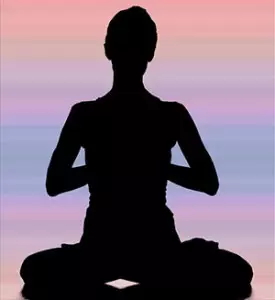
Studies have shown that acupuncture treatments can reduce the frequency of hot flashes. As few as three treatments produced significant positive results, while a full course of treatment (at least eight sessions) provided relief for many women for up to six months. In addition to relieving hot flashes, acupuncture also improves quality of life in many other ways: reducing headaches and other body aches, alleviating anxiety and depression, and improving sleep. TCM also offers customized herbal formulae that support the body’s hormone balance and help with menopause symptom relief. In many ways, the effects of perimenopause and menopause are not quantifiable, as some are more emotional in nature. This change occurs not just in the body, but in the mind. At this time, a woman is seeing herself differently, reevaluating her own sense of identity and purpose, and in some cases, shifting her focus and energies in life.
Acupuncture for PMS Symptoms and Menopause
Physically, a woman goes through many significant changes over the years, and different factors come into play. If a woman’s body is out of balance — due to trauma, stress, illness, injury, diet, environment, etc.–she may experience difficulties with her female organ function. Painful periods, irregular periods, cysts, fibroids and endometriosis are all common conditions — but they do not happen without some imbalances causing them. A lifetime of choices, experiences, pains and pleasures add up to create the health status we live with now, in this moment.
Women’s health issues can be addressed, at any stage of life, with acupuncture and herbs, as well as the right kind of food and lifestyle choices. If a woman finds and partners with a good healthcare practitioner, and practices a lifestyle that helps her achieve optimal health, she does not have to suffer through years of PMS, unpleasant symptoms during pregnancy like morning sickness, nor through years of menopausal symptoms, either. Unfortunately, many women do not know there is an alternative to using pain relief medicines, oral contraceptives and hormone replacement to manage symptoms. These drugs do not offer a real solution to the problems; they mask them. As women, we are often expected to simply accept these problems and learn to cope. But why settle for that, when we have the means to correct them?
What is a Natural Remedy for Hot Flashes? Acupuncture and Menopause Supplements
TCM looks at female care as “ovarian care.” Besides paying attention to our liver, heart, lungs, and kidneys, we also focus on menstrual and premenstrual care, pregnancy and postpartum care, and menopause care. These are unique to women. The ovaries are the major players when it comes to female hormones, cycles, and reproductive health. Girls, young women and older women can all benefit from regular treatment, herbal supplementation, and lifestyle improvements to encourage healthy and smooth functioning of these processes. If, as a younger woman, you are able to manage your hormones, then, when menopause comes, it hopefully will not be too much of a problem. If you are already experiencing menopause symptoms, it is not too late to get Yin and Yang balance restored, so that you can enjoy this phase of life and many healthy years to come!
According to TCM, most menopausal disorders fall under kidney and/or liver Yin deficiency. This manifests in hot flashes, waking often at night around 3:00-4:00 a.m., dreamy light sleep, irritability, memory loss, dry eyes, mood swings, and irregular periods. A smaller percentage of symptoms fall under kidney Yang deficiency; low back soreness, incontinence, water retention, fatigue, indigestion, and weight gain. We use very specific acupuncture points to help with each of these different problems, and are able to treat each woman’s unique combination of issues. We also have our unique techniques (needling and massage) and herbal products to help skin stay firm and smooth.
8 Self-Care Best Practices for Menopause

Acupuncture and herbal modalities have been taking care of these women’s health issues for thousands of years. Besides seeking these professional services, there are many things you can do at home to facilitate a smooth transition:
- For Yin deficiency, stick with cooling and juicy foods like fresh veggies, fruit, yams, sweet rice, mung beans, lotus roots or seeds. Stay away from alcohol, coffee, and spicy foods which increase internal fire or heat. Snacking on Goji berries is recommended, drinking chrysanthemum tea, chamomile tea or Art of Wellness’s own Night Tea can help you rest and sleep better.
- For Yang deficiency, drink warm lemon water upon rising, eat more cooked and warm food, nuts, especially walnuts and pecans, stay away from dairy, icy foods and drinks and greasy, heavy meals. 20-30 minute hot foot spa before bedtime is recommended. Rub the low back along the midline of the spine and on both sides until very warm.
- For saggy or loose skin, facial rejuvenation acupuncture needling will help stimulate collagen production and improve facial circulation.
- Speed-walk 30-45 minutes per day.
- Rub hands to warm them, then rub the soles of each foot 100 times. Practice daily.
- Meditate 20 minutes daily, in the morning or ideally, at bedtime.
- Suggested Menopause Meditation: focus on the lower abdominal area (Dan Tian), until it feels warm. Then, move the warm sensation into your kidney area.
- Try this Lotus smoothie recipe. Good for anyone, but especially for women experiencing menopausal symptoms: ½ cup lotus seed, ½ lily bulbs, 1 tablespoon mung beans, 1 tablespoon sweet rice, 10 pieces of honey dates. Rinse all ingredients but dates. Add 6 cups of water, cook for 20 minutes. Blend. Garnish with a few goji berries. Make 4 servings. Serve warm for breakfast, or cold for an afternoon snack. Feel free to add fruit, such as banana, berries, apple, pear, etc.
If you or a woman you care about is experiencing menopause symptoms, look for acupuncture near me, and call Art of Wellness, Santa Monica, Los Angeles, CA. Our clinic is one of the top 19 pick among 825 similar clinics in the great Los Angeles area. Our doctors have over 30-years experiences of practicing TCM and acupuncture. Dr. Cai is a specialist in all women’s health issues.
*This article is for education from the perspective of Traditional Chinese Medicine only. The education provided by this article is not approved by FDA to diagnose, prevent, treat and cure human diseases. It should not stop you from consulting with your physician for your medical conditions. Traditional Chinese Medicine is based on Qi, which is an invisible force that usually cannot be observed by modern science. Because science focuses on testing ideas about the natural world with evidence obtained through observation, these aspects of acupuncture can’t be studied by science. Therefore acupuncture and Chinese herbs are often not supported by double-blind, randomized trials, and they are considered alternative medicine therapies in the United States.
How to Treat Stress with TCM and Acupuncture
by Qineng Tan, L.Ac., Ph.D.
Nowadays, we hear pretty constantly that everyone is “under a lot of stress.” But what is stress?
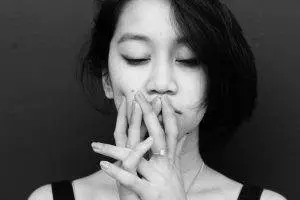
Stress is a natural reaction in the body to any difficulties or changes that we face in life. Stress affects health at every level: physically, mentally, and emotionally. Stress can bring a lot of negative effects to your health and your career. TCM and acupuncture offer a unique treatment to stress management without any of the side effects that anti-depression drugs cause. Acupuncture treatment often brings people immediate stress relief, as they leave the clinic feeling calm, relaxed, sometime even euphoric. But TCM and acupuncture can also provide meaningful reduction in the toxic effects of long-term stress over time.
In this article we will discuss stressors, stress symptoms, and how to combat the negative effects of stress on your body, mind and spirit.
What Are Stress Symptoms?
“But he was so young!” “But there wasn’t anything wrong with her!” Have you heard of someone you know–maybe a friend or a relative, maybe someone famous you admire–dying, suddenly? It’s hard to take it in; we don’t want to believe that these things can happen, especially when someone is only middle aged. It forces us to look at our own lives. Are we taking the time to take care of ourselves? Or are we rushing around from one crisis to another, always stressed out?
Stress is the body’s natural reaction to any difficulties that appear in our lives, physically or emotionally. It’s a normal response to adverse conditions. It’s actually healthy to experience some low-degree, short-term stress occasionally, because this lets the body practice protecting itself. Unfortunately, our modern lifestyle creates a lot of stressful situations for us to endure, and most people are not taught or encouraged to release the effects of stress from their bodies and minds. When stress builds up, it can lead to health problems. It may be that when you go to an M.D. who orders tests, nothing shows up in a scan or a blood test. But that does not mean you don’t have a serious problem.
Chronic stress can cause a variety of symptoms and illnesses and affect overall health and well-being. Many diseases, including cancer, can be linked to stress. Job changes, the illness or death of a family member, relationship issues, financial or business difficulties, caring for and educating children – we all face these stressors at one time or another. For some people, the problems begin in childhood. If a child experiences trauma–parents fighting, or bullying at school, for example–that kind of severe stress can develop into permanent health problems as he or she grows up.
What Does Stress Do to Your Body?
Stress can affect all systems in the body. It starts with the central nervous system and the endocrine system. When something unusual happens, the brain gets a signal: something needs to be done! The brain sends out a message, alerting the body to start producing hormones like adrenaline and cortisol. Adrenaline increases the heart rate, elevates the blood pressure and boosts energy supplies. Cortisone increases sugar in the bloodstream, enhances the brain’s use of glucose and increases the body’s ability to repair tissues.
The body’s initial reaction to stress is to protect itself. But if you are under this kind of stress constantly–think about it–your body will keep producing adrenaline, causing the heart to beat constantly at a high rate and keep the blood pressure high. Eventually, the body will become exhausted, leading to chronic fatigue, hypertension, diabetes, risk of stroke and heart attack. The lungs become vulnerable, which can trigger asthma, and allergic reactions such as eczema or hives rash. When the cortisone level is high, it causes a constant immune response. Eventually, the immune system becomes imbalanced.
When stressful periods are prolonged, the body can lose the ability to shut off the alert that says something is wrong: what we call the “fight or flight” response. Say you send a soldier to a war zone. The soldier’s job is to shoot the enemy. When the enemy approaches, the soldier starts to shoot. But if the soldier is there fighting for days, weeks, years, and his job is to keep shooting, at some point he stops recognizing who is an enemy or who is an ally. He will shoot anybody. Likewise, the body loses the ability to recognize what is good and what is not good. Stressful life events are often a main factor in the onset of an autoimmune condition, like ALS, MS, lupus, or rheumatoid arthritis. When a person has experienced shocking, perhaps life-threatening, events such as being attacked or surviving in a war zone, he or she may exhibit PTSD symptoms, depression, or panic attacks.
When a person is under chronic stress, the liver has to work much harder. We rely on the liver to clean the blood, but if it gets tired out, it can’t do its job. So toxins don’t always come from outside the body; they can come from stress, when the body becomes more acidic and toxic, increasing inflammation and risk of cancer. Liver Qi problems are a major factor in women’s health problems, including PMS and PMDD.
When we’re upset, the appetite changes, causing us to eat too much or too little, affecting our nutrition. Many digestive problems are related to long term stress: heartburn and reflux, ulcers, cramping, nausea, vomiting, obesity, constipation, bloat, IBS, diarrhea. Sometimes stress shows itself externally, on the surface of the skin, as with eczema or psoriasis.
Stress causes the muscles to become tight and makes the nerves more sensitive. This causes more pain and inflammation.
The reproductive system and the sex drive are, naturally, affected by hormone imbalances. For women, this can cause PMS, fertility issues related to ovarian function, blocked tubes, or unstable uterine lining, and more severe menopausal symptoms. For men, long term stress can cause the testosterone level to drop, the prostate and the urethra to become inflamed and prone to infection. With all of this, it is no wonder that libido and sexual function (erectile dysfunction) take a dive, too.
Stress Management by TCM and Acupuncture
TCM is based on the philosophy that the body, mind, and spirit are inextricably linked. It is only in recent years that Western science has begun to acknowledge the
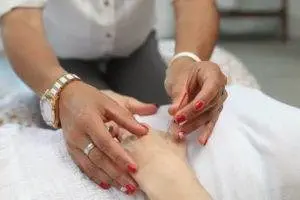
connection between the emotions and our physical health. In TCM, we always look at the whole person. If the emotions are out of balance, the body’s functions will be, too. Keep in mind that without a spirit, the body is nothing more than a container: a box. Likewise, if the body is not healthy, the spirit doesn’t have a good home to live in. That is why we treat stress, emotional fluctuations, and balance the body’s organ systems all at the same time with acupuncture.
Acupuncture is one great way to help you manage your stress and protect you from permanent health damage. Even though you may not be able to avoid stress, you do have the power to manage stress better so that it can’t build up, hurt you internally, and turn into serious health issues.
Top 7 Habits for Stress Relief
Every day, we encounter people and situations that cause frustration. Sometimes several minor incidents over the course of a day can build up until we feel we are at the end of our ability to cope. Other times, we are hit with a big problem that we have no choice but to face. These stressors are unavoidable. What we can do is pay attention to our responses, and train ourselves to respond more calmly when situations arise.
Here are some things you can do in your daily life to manage stress.
- Change the way you view problems. It is human nature to protect ourselves from danger by recognizing the negative energies coming at us. But we can become too accustomed to looking for the “dark side.”A lot of time we needlessly take things negatively. Say you wake up to the sounds of a bird, chattering in a tree. You can think, “Ah, the beautiful music of nature!” Or you can get annoyed. Same situation, different response. Learn how to think positively. Often I ask a patient to “show me your hand.” They show me the palm side, but don’t think to look at the back of the hand. In the world, nothing can exist that has one side only. This is the concept of Yin and Yang; nothing is only good or only bad. There is good and bad in everything. Learn to pay attention to both, but “accentuate the positive.”
- Connect yourself to nature; consciously choose to make yourself one with the Universe. Connect to energy outside of yourself by going to the mountains or the

Spending more time outdoors can help alleviate stress beach, walking barefoot on the sand and listening to the waves. Sit by a river and feel the flow of the water. When you feel anger inside, go out and face something – a mountain, or the woods – breathe out, remove that negative energy from your body, absorb positive energy; make that exchange. By doing this, you gain the perspective of playing a small, yet integral part within the greatness of the universe. This will release stress and give you new strength.
- Learn some techniques: Tai Chi, yoga, meditation, Qi Gong. Tai Chi, for example, trains you physically and emotionally at the same time, cultivating your internal Qi. Deep breathing will make your body more balanced and calm; exhale negative energy and inhale fresh air and energy.
- Engage in regular physical activity, especially cardiovascular varieties. Walk, jog, bike, swim. Going outdoors, getting fresh air and sunshine, is even more beneficial than going to the gym.
- Encourage yourself to engage in some social activity. Stress can cause sadness and depression. People tend to close themselves off. So, you must push yourself to go out, keep up your activities. Talking with friends will release the stagnation from your body and mind. Sign up to volunteer; helping other people will reduce your stress.
- Take time for a hobby. Whatever you enjoy: walking, swimming, reading, listening to music, going to dance class, fishing, golfing. Do it regularly. But it should be something active for your body or mind. Inactive pastimes– like watching television or playing video games, surfing the internet–may seem relaxing, but they can actually increase stress long term. Keep time spent on those passive activities to a minimum.
- Work on your sense of humor! When you laugh, you are happier and so are others around you. Be generous with your positive energy and others will be there to help you when you need it.
Managing stress will pay off, not only by making you happier, but probably also allowing you to enjoy a longer and healthier life. Practicing stress management will help you to recover from existing conditions and prevent other issues from becoming serious in the future. If you need treatment and look for acupuncture near me, come to our clinic Art of Wellness, Santa Monica, Los Angeles, CA. Our clinic is one of the top 19 pick among 825 similar clinics in the great Los Angeles area. Our doctors have over 30 years of experience of practicing TCM and acupuncture.
How To Treat Sprained Ankles by Acupuncture and TCM
by Qineng Tan, L.Ac., Ph.D.

Prompt treatment of sprained ankles by Acupuncture and TCM can reduce pain, swelling, and recovery time. Acupuncture improves circulation to alleviate inflammation and generates the flow of endorphins to relieve pain.
A sprained ankle is one of the most common injuries. It can happen to kids and adults of all ages. It can happen when you’re actively playing a sport, or just walking around in your own home. A sprain is a soft tissue injury that results from the overstretching or tearing of ligaments due to the ankle being pushed beyond its normal range of motion by a sudden twist or turn. Ligaments are the strong tissues that stabilize all of the small bones of the foot and support the joint where the leg bones meet the foot. This injury most often affects the outer side of the ankle.
Acupuncture Near Me for Sprained Ankle
Acupuncture treatment can provide immediate analgesic pain relief for soft tissue injuries such as an ankle sprain. The stimulation of appropriate acupoints has been proven to release natural endorphins in the body that reduce pain while also blocking the nervous system processes that signal pain. Soft tissue injuries are those that affect the ligaments, tendons and muscles. Symptoms of soft tissue injuries such as sprains and contusions include pain, swelling, bruising and limited ability to use the affected area. Acupuncture has been used for thousands of years to treat these types of injuries. Inadequate care for a sprained ankle or other similar injury can lead to a long-term loss of mobility and strength in that part of the body. That’s why we recommend you seek acupuncture treatment as soon as possible after the occurrence of the sprain and continue until the area is truly healed.
3 Types of Ankle Sprain
A sprain can be one of three severity levels:
- Grade I
A minor sprain can occur when you are just walking. The ankle turns in sharply, causing the muscles and ligaments to pull and tear slightly. - Grade II
A moderate sprain might happen when running, or because of a fall. In this case, the ankle is twisted further in, causing a partial tear of the ligament. - Grade III
A severe sprain happens because of significant impact—such as a fall at great speed or from a height, or a fall compounded by another person’s weight, such as might happen while playing a sport like football, soccer or baseball. In this case, the ligament might be torn completely. In very severe cases, it may also cause some fracturing of the ankle and/or even dislocation.
The ankle is a wonder of design; it is a very stable joint that not only carries your body weight, but withstands a lot of pressure and impact when you run and jump.
It is really made up of two joints; the true ankle joint is formed by the meeting of three bones–the tibia, fibula and talus—and works like a hinge to create the up and down movement of the ankle. The subtalar joint is formed by the talus and the calcaneus, and allows for the side-to-side motion of the ankle. Ligaments are the soft tissues that connect bones to bones, while tendons are the soft tissues that connect muscles to bones; both are made up of small fibers of collagen. Cartilage is the tough yet soft, slippery tissue that creates cushioning and slip between the bones. A sprained ankle can result in torn tissues in the muscles, tendons or ligaments, damage the cartilage, and in severe cases, may involve fractures in the bones.
The pathology of a sprain begins in the acute stage—the first 1-2 days–with internal bleeding at the injury site. Fluid builds up in the tissues of the joint, which leads to swelling. After a few days, the active bleeding stops and inflammation begins to exert pressure around the area, compressing the blood vessels and slowing down the flow of fresh blood. This results in blood stagnation.
When blood has built up in the joint and stopped moving freely, it has a negative effect on the healing process. Incomplete healing can mean that the ankle loses some of both its stability and flexibility. The tendons and ligaments can become fragile, which means the joint is now more susceptible to re-injury.
Self Care for Sprained Ankles
For immediate home care of a sprain, follow the Universal Rule of RICE.
- R – Rest
- I – Ice

Acupressure Point for Sprained Ankle - C – Compression
- E – Elevate
Ice a new injury for the first three days. Then, begin alternating between ice and heat. For chronic pain conditions, use a heating pad more than cold therapy.
You can stimulate Xiao Jie acupressure point with gentle pressure. Press this point on the base of the thumb joint: right thumb for left ankle, left thumb for right ankle.
Do not massage the area during the first week of recovery. After that, gentle self-massage between the knee and ankle, focusing on releasing tightness in the shin and calf, is best. Don’t walk or put any weight on the foot for 3-7 days, depending on the severity of the injury. When you are ready to begin exercising the ankle, begin with gentle, non-weight-bearing movements.
A good exercise to try is the “A to Z Exercise”:
Lift the injured leg, or cross it over the other leg so the ankle and foot can move freely. Using the big toe as the point of your “pencil,” draw the letters of the alphabet in the air, using at first very small, circular movements of the ankle joint. Gradually, work up to making the letters larger.
After 2-3 weeks, you may be ready to begin engaging in activities that increase the range of motion, yet still keep most of your weight off the ankle, doing exercises such as pedaling a bike, swimming, or walking through water.
Gradually, after 4-5 weeks, you will be able to resume walking on a flat surface.
7 Ways to Prevent Sprained Ankles
A person who has sprained an ankle is more susceptible to future injuries in that area. To prevent such injuries:

- Regularly practice exercises to strengthen and improve the flexibility of the ankle.
- Practice all-over muscle strengthening exercises and focus on balance training.
- Wear properly supportive shoes, both when playing sports and in normal everyday life. (Minimize wearing high heels, flip-flops, etc.)
- Always warm up before engaging in sports and workouts.
- Be extra careful walking on uneven surfaces.
- Wear a stretchy brace if you start feeling soreness.
- Receive acupuncture “tune-ups” regularly to maintain good flow of qi and blood.
It is good to see your acupuncturist as soon as possible after spraining an ankle. We use various modalities including acupuncture, herbal supplements to facilitate healing, and possibly moxibustion to bring more energy to the area. The treatment will focus on stopping the internal bleeding and reducing the swelling of the joint. Minimizing inflammation and maximizing the constant circulation of blood will speed healing and help to ensure that the injury does not become a chronic one.
